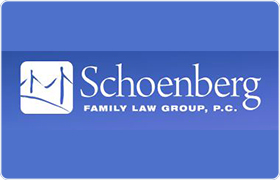Antioch Adoption Lawyer, California
Sponsored Law Firm
-
 x
x

Click For More Info:
-
Schoenberg Family Law Group, P.C.
575 Market St Suite 4000 San Francisco, CA 94105» view mapDivorce & Family Law Over 30 Years of Experience
Schoenberg Family Law Group, P.C., recognizes that family law matters involve complex, sensitive issues that can have a lasting impact on you and your family.
800-781-8440
William A. Gonser
Administrative Law, Adoption, Alimony & Spousal Support, Corporate
Status: In Good Standing Licensed: 43 Years
Thomas W. Wolfrum
Dispute Resolution, Alimony & Spousal Support, Child Support, Adoption
Status: In Good Standing Licensed: 52 Years
 Debra Schoenberg San Francisco, CA
Debra Schoenberg San Francisco, CA AboutSchoenberg Family Law Group, P.C.
AboutSchoenberg Family Law Group, P.C. Practice AreasExpertise
Practice AreasExpertise
